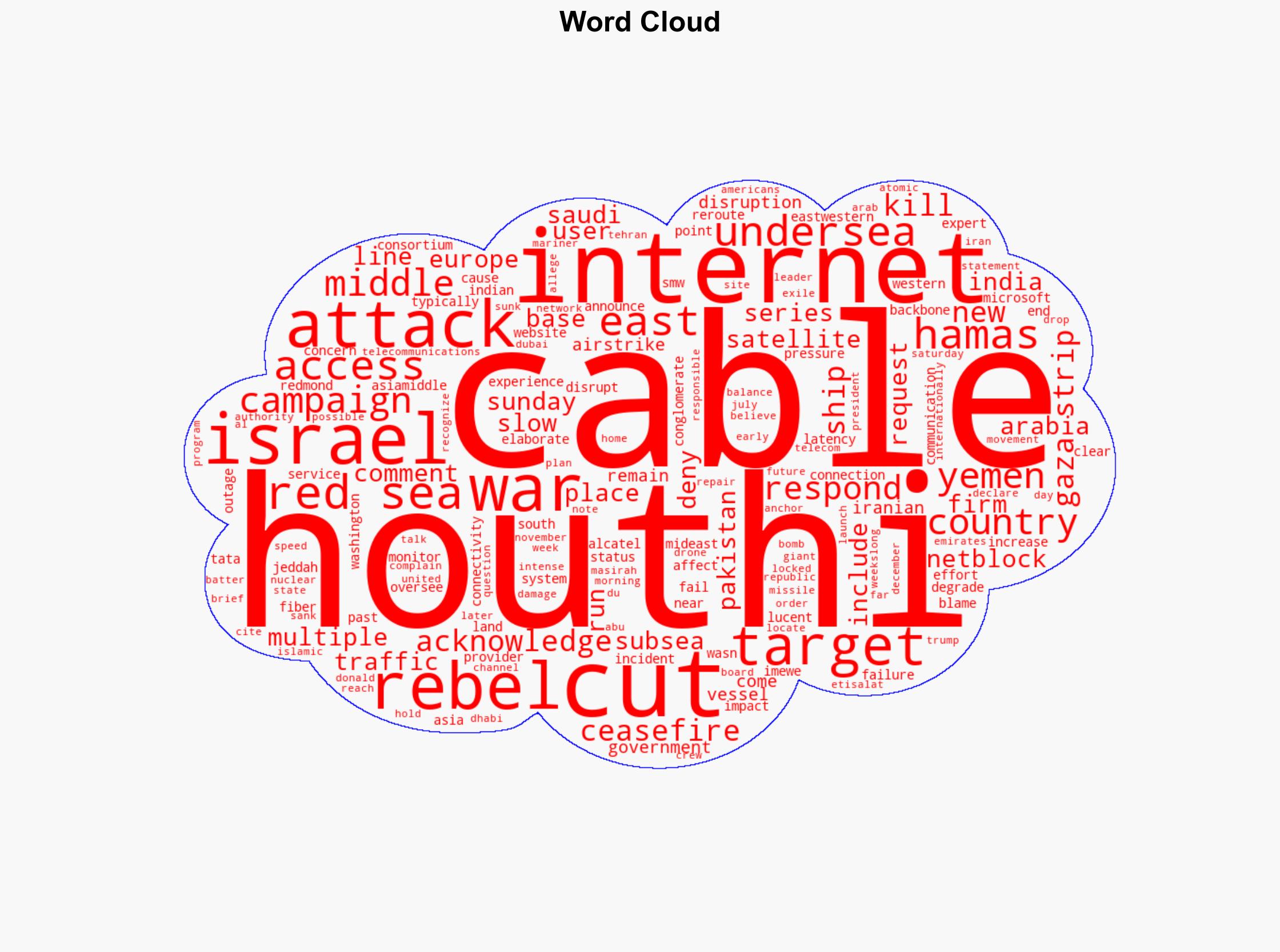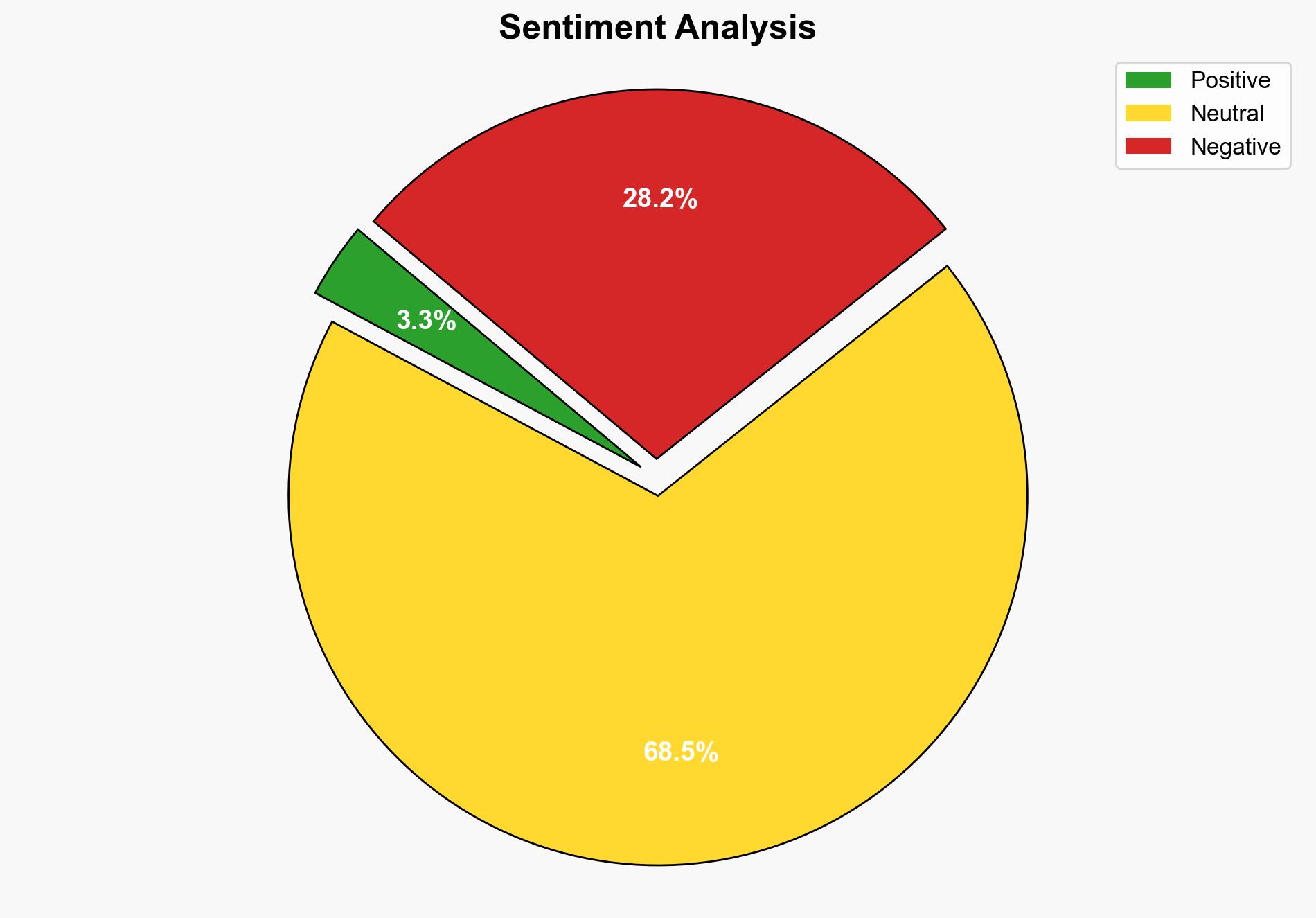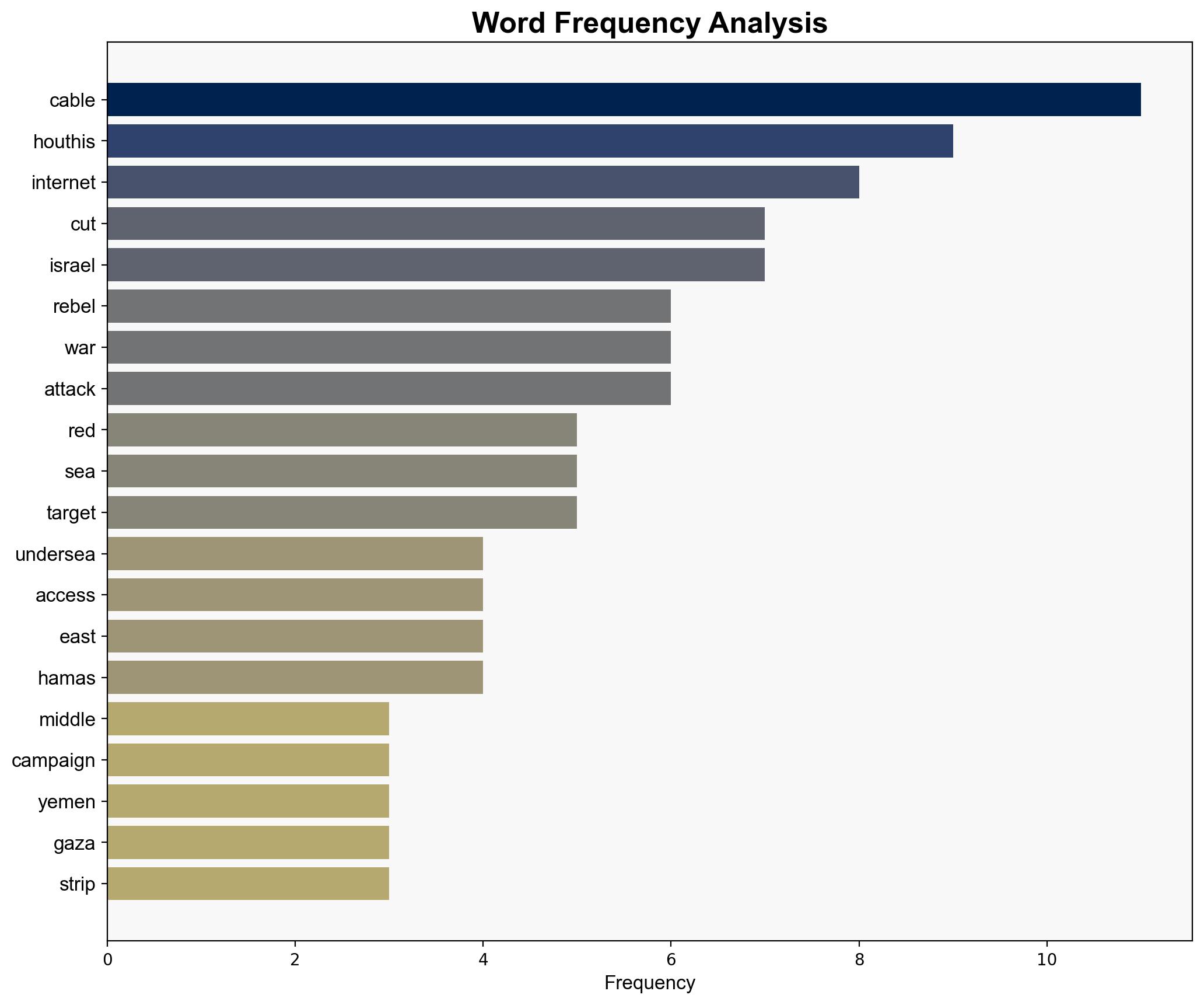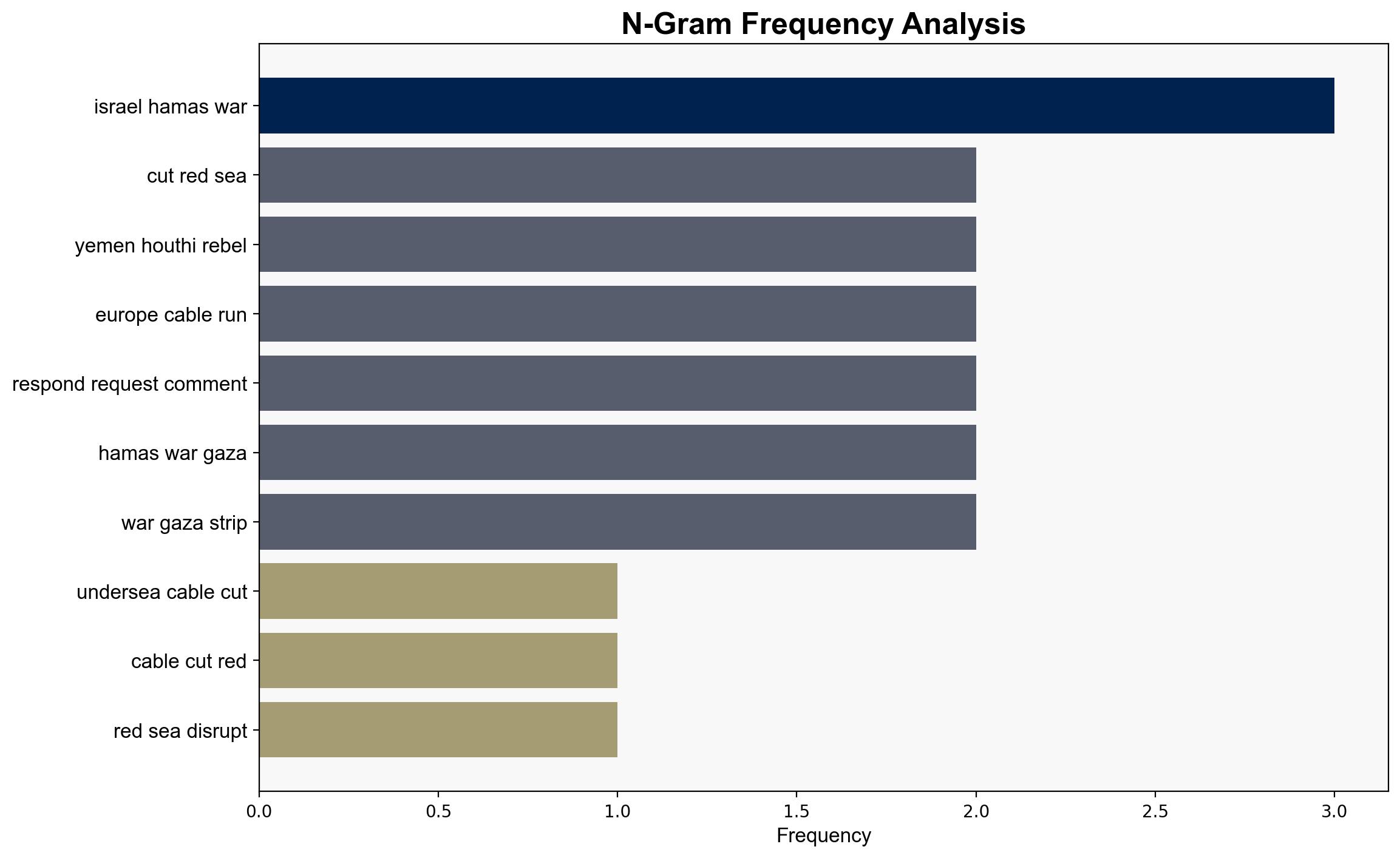Red Sea cables cut disrupting internet access in Asia and the Mideast – CNBC
Published on: 2025-09-07
Intelligence Report: Red Sea cables cut disrupting internet access in Asia and the Mideast – CNBC
1. BLUF (Bottom Line Up Front)
The most supported hypothesis is that the undersea cable cut was an unintended consequence of maritime activity rather than a targeted attack by Houthi rebels. Confidence in this assessment is moderate due to the lack of direct evidence linking the Houthis to the incident. Recommended action includes enhancing maritime surveillance and securing critical infrastructure to prevent future disruptions.
2. Competing Hypotheses
1. **Hypothesis A**: The cable cut was an accidental result of maritime activities, such as anchoring or fishing, rather than a deliberate attack. This is supported by the lack of direct evidence implicating any group and the common occurrence of such accidents in busy maritime regions.
2. **Hypothesis B**: The cable cut was a deliberate act by Houthi rebels as part of a broader strategy to pressure Israel amid ongoing conflicts. This is supported by the timing of the incident and the historical context of Houthi activities in the region.
Using ACH 2.0, Hypothesis A is better supported due to the absence of specific claims of responsibility and the commonality of accidental cable cuts in the area.
3. Key Assumptions and Red Flags
– **Assumptions**: Hypothesis A assumes that maritime activities are frequent and poorly regulated in the Red Sea, leading to accidental cable cuts. Hypothesis B assumes that the Houthis have both the capability and intent to target undersea cables.
– **Red Flags**: The denial by the Houthis could be a strategic deception. The lack of immediate claims of responsibility or evidence of sabotage raises questions about the intentionality of the incident.
– **Blind Spots**: Limited access to direct evidence from the site of the cable cut and reliance on secondary reports may obscure the true cause.
4. Implications and Strategic Risks
– **Economic Impact**: Disruption of internet services can have significant economic repercussions for affected regions, impacting businesses and communications.
– **Cybersecurity Risks**: The incident highlights vulnerabilities in undersea infrastructure that could be exploited in future cyber or physical attacks.
– **Geopolitical Tensions**: If perceived as a deliberate act, this could escalate tensions between regional actors, particularly if linked to ongoing conflicts involving Israel and Iran.
– **Psychological Impact**: Repeated disruptions can undermine public confidence in infrastructure security and government response capabilities.
5. Recommendations and Outlook
- Enhance maritime surveillance and monitoring to prevent accidental cable cuts and detect potential threats.
- Strengthen international cooperation to secure critical undersea infrastructure.
- Scenario Projections:
- **Best Case**: Improved surveillance leads to a decrease in accidental disruptions.
- **Worst Case**: Continued disruptions escalate regional tensions and lead to retaliatory actions.
- **Most Likely**: Increased awareness and preventive measures reduce the frequency of such incidents.
6. Key Individuals and Entities
– Houthi rebels
– Microsoft (impacted by increased latency)
– Tata Communications (involved in cable operations)
– Alcatel-Lucent (oversees cable consortium)
7. Thematic Tags
national security threats, cybersecurity, counter-terrorism, regional focus




